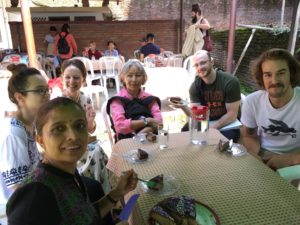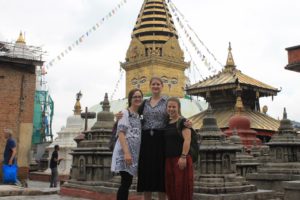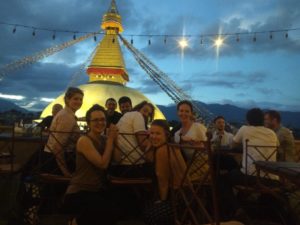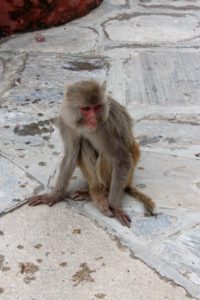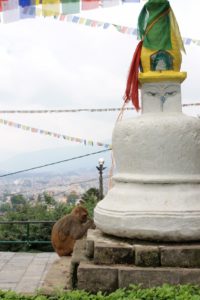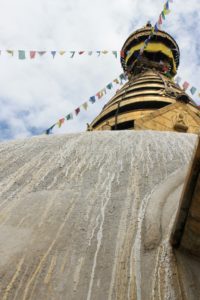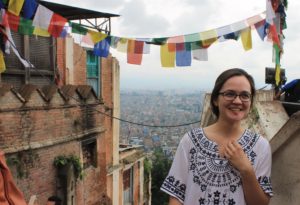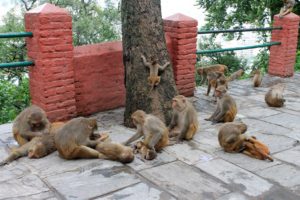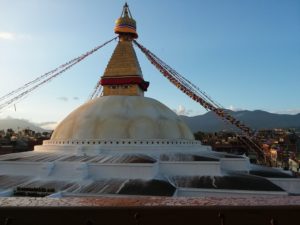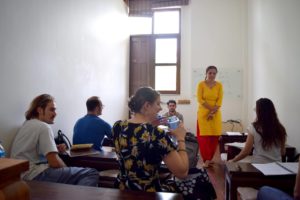
I’m currently in the middle of my third week and I am amazed by how much I’ve already learned. I feel I know enough Nepali to be understood at least part of the time, even if I can mostly only ask very confusing things in probably slightly inappropriate tenses. My big success this week was taking a local bus by myself to and from Samaanta Foundation, where I started volunteering twice a week helping the fellows develop their professional English skills. It really forced me to get out of my comfort zone and use my Nepali – and for such a good cause of getting to and from the foundation where I get to hang out and help a great group of Nepali college-aged fellowship recipients.
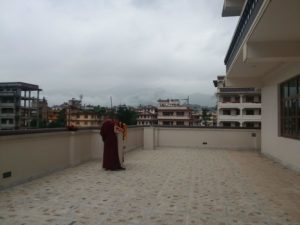
Going by bus was slightly terrifying at first. The roads here in the city are confusing and dense, and busy times can be a frenzied flurry of people, animals, vehicles, and mud (especially in monsoon season). However, both ways I was befriended as I tried my hardest to speak Nepali – first to ask after the bus fair and second to chat about my destination.
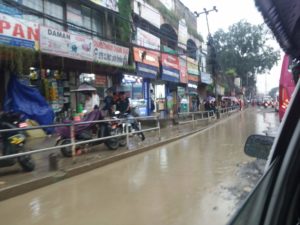
The woman I befriended on the way to the foundation ended up having great English – we spoke a bit in both languages as she told me she was moving abroad soon to join her husband. Nepal has a large portion of economic migrants leaving the country to work elsewhere – a phenomenon I’d love to explore more in my research down the line. Unfortunately, I wasn’t able to talk to my new friend for long before my stop came up and I hopped off, happy as a clam that I had actually ended up where I was trying to go.
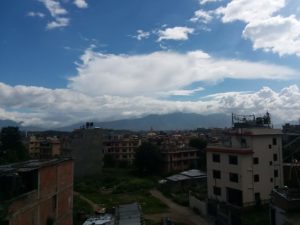
The way back to Boudha began with me being walked to the stop by one of the fellows who was eager to make sure I got to my bus safely. On our walk, he told me about his village and how beautiful it was, even if the opportunities there were extremely limited. Higher education isn’t available where he is from, so the fellowship enables him to study in Kathmandu and be introduced to new opportunities and resources. Like this one student, many of the fellows have overcome great difficulties to pursue their education, including a dearth of resources, destruction from the earthquake, and a lack of access to institutions. I was awed by how eager these students were to improve their language skills and to learn about the world around them – volunteering at Samaanta is truly going to be a highlight of my summer stay here in Kathmandu.
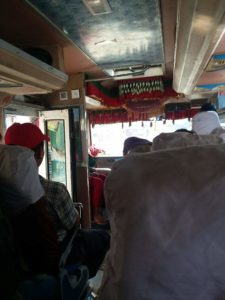
Once I was safely on the bus, two teenage girls sat (or squashed) next to me, giggling to themselves about whatever it is teenage girls giggle about. It wasn’t long before they were offering me their chips almost unceremoniously – as if it were expected we would just be sharing. Nepali actually has an interesting construction – or lack thereof – of possession in some instances. When asking if one has something like chips or pencils, for example, you don’t use a direct or possessive construction, but instead ask if that thing is ‘with’ someone. In other words, you’d ask ‘Is there a bag of chips with you?’ instead of ‘Do you have a bag of chips?’ I’m not sure whether or not this actually implies a sort of communal possession of items like pencils and chips, but it is certain that many things are actually shared in practice here (including water, which I think might be why one can see people pouring the water into their mouths without touching the bottle – even if it’s ‘their’ bottle). It’s a bit of a different concept of ownership than we have in the West, but it can be quite lovely.
After we had been sharing their chips for a while, one of the girls finally got enough courage to ask me where I’m going (in English), and I replied (in Nepali) and we all did a fist bump in celebration. It was great. We continued the bus ride with them helping me with my flashcards and squishing closer as rush hour picked up until we (finally) arrived at our destination. At Boudha, they paid my fair without me realizing it, and we parted with many smiles and salutations. I can’t explain how wonderful it made me feel to be a part of something so small, yet so expansive and meaningful.
The days are going by so fast here, and I can only trust that the language is seeping in where it can. It’s almost overwhelming to meet so many wonderful and interesting people, but I can’t wait to see what else the summer has to offer.
(Bonus: Pictures from our field trip to Swayambhu Temple this past weekend, our teacher’s birthday celebration, and our 4th of July pizza party below.)
